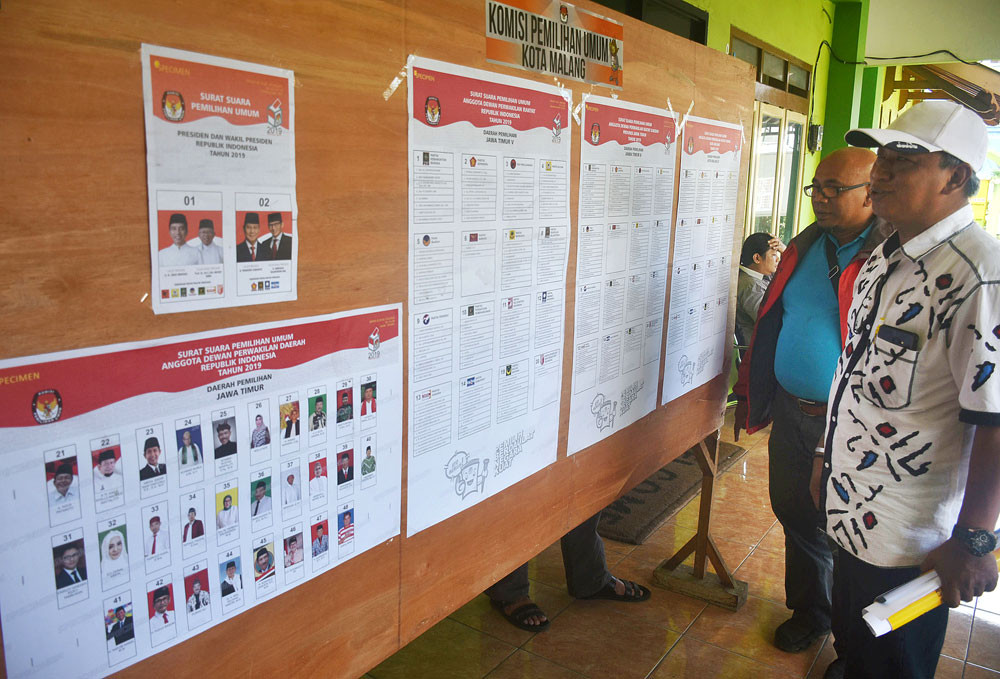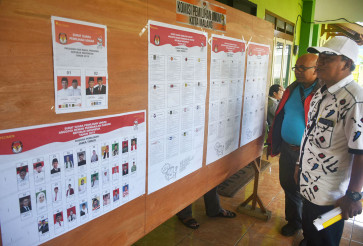Popular Reads
Top Results
Can't find what you're looking for?
View all search resultsPopular Reads
Top Results
Can't find what you're looking for?
View all search resultsElection as transaction of trust
In many respects, the House of Representatives elected in 2014 performed poorly. Members’ attendance records were barely 40 percent. And a number of its members, including the speaker and one of the deputies, were implicated in corruption scandals.
Change text size
Gift Premium Articles
to Anyone
I
n many respects, the House of Representatives elected in 2014 performed poorly. Out of 189 draft laws listed in the 2015-2019 National Legislation Program, it only managed to pass 26. Members’ attendance records were barely 40 percent. And a number of its members, including the speaker and one of the deputies, were implicated in corruption scandals.
Such a low quality is not surprising. After all, output is a product of input and process. The 2014 legislative election, believed to be marked with vote-buying, was deemed as among the worst in the post-reform era. The recent arrest of a politician for allegedly accepting bribes that he would use to buy votes for reelection indicates the practice remains unaddressed.
Generally, legislative candidates at all levels will do whatever it takes to win the seats. With 16 political parties, plus four Aceh local parties, and 245,000 candidates competing, money politics becomes an appealing shortcut. As a legislative candidate for the first time in 2014, I felt the temptation to engage in the practice.
Whether candidates will win through buying votes or not, it’s up to the voters to decide. That in itself is not always a good thing. Through various interactions with the voters, I saw something discouraging developing in our society, a mentality of asking for money in return for a favor.
A political election is indeed a transaction. In return for their votes, voters expect something from the candidates. However, it is a transaction of trust — not votes. The voters trust the legislative or executive candidates, and manifest it in their votes for them. In return, the elected ones use the trust to work on public policies to improve the lives of the people they represent or lead.
It must also be understood that the nature of the transaction is investment. That is, exchange of trust does not stop after voting day. It requires a continuing communication from both sides. And just like other investments, the results are not instant. It’s about the future. And it also bears some risks.
Back then many voters told me that they had been disappointed with their representatives, who never saw them once they elected them. But farmers do not stop planting just because they had a bad harvest the previous year. What must be done is to improve the cultivation as well as keeping the plants from pests and other potential problem to minimize the risks. In other words, they have to wisely vote for their leaders and representatives and constantly watch over their performance.


















